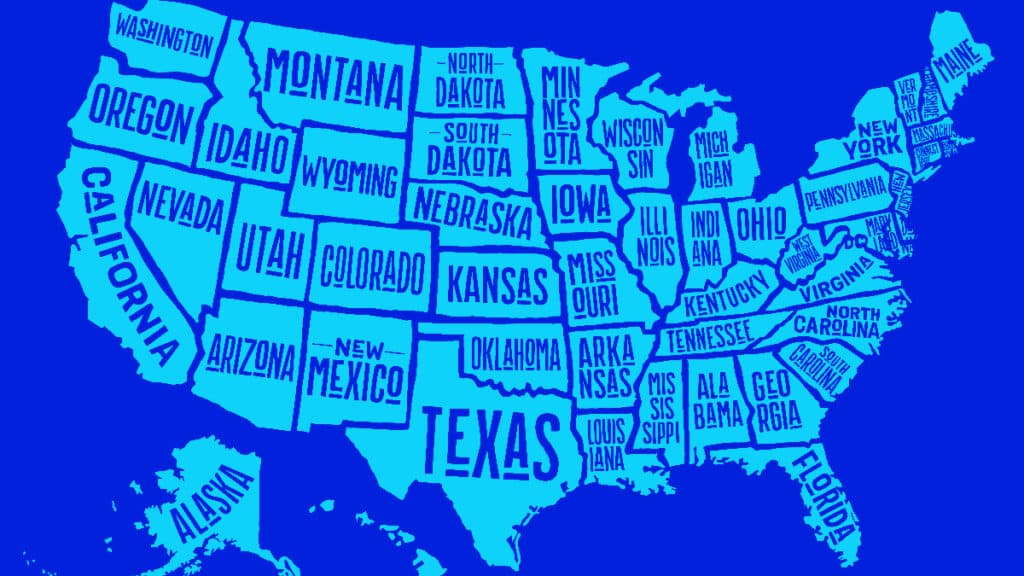U.S. States Will Dominate Tech Policy This Year and Next
Matt Perault, J. Scott Babwah Brennen / Jan 25, 2023Dr. J. Scott Babwah Brennen is head of online expression policy at the Center on Technology Policy at UNC-Chapel Hill. Matt Perault is the director of the Center on Technology Policy, a professor of the practice at UNC’s School of Information and Library Science, and a consultant on technology policy issues at Open Water Strategies.
Earlier this month, President Joe Biden published an op-ed calling for Congress to pass sweeping new legislation regulating technology platforms. Despite this push from the president, the chances of significant new reform in Congress are slim.
But while Congress stalls, the void is likely to be filled by a rush of activity in state capitals. States — not Washington D.C. — are poised to be the critical battlegrounds for tech policy in the next two years.
Compared to the federal government, states have structural advantages that expedite the passage of new legislation. After the 2022 midterms, 39 states have “trifecta” governments, where a single party controls the governor’s office and both legislative houses. In trifecta governments, the ruling party does not need to cross party lines to enact legislation. In a recent report, we estimated that trifecta governments were responsible for 80% of state platform regulation passed in the last two years. And unlike the federal government, most states do not permit filibusters—lowering the threshold to pass new legislation.
In addition to these structural advantages, state policymakers appear motivated to change the rules for the tech sector. States recognize that they can fill in the gaps left by federal inaction. For example, while federal data privacy legislation has failed to get the support necessary to pass Congress, five states have enacted comprehensive privacy laws since 2018. Similarly, while recent federal proposals to address online child safety have stalled, California passed the Age-Appropriate Design Act, which will shape kids’ experiences online. California’s legislation is already spawning similar bills in other states.
Relatedly, many state legislatures will soon meet for the first time since the Supreme Court’s decision to overturn Roe v. Wade. Both the left and the right are already teeing up new abortion-related bills—some of which will directly implicate tech platforms. For example, last year, California enacted a law preventing any platform headquartered in the state from complying with out-of-state law enforcement investigation of abortion-related offenses. And legislators in South Carolina introduced a bill, based on a model written by the National Right to Life Committee, that would prohibit “providing information” about abortion access. The California and South Carolina bills signal how both parties are using tech regulation to support their broader abortion agendas.
As many state legislative sessions kick off this month, what are they likely to do to regulate tech platforms? In the report we published last month, we offered some predictions.
First, over the past few years, five states have passed comprehensive consumer privacy legislation. In the absence of federal legislation, more and more states will likely pass their own comprehensive data privacy bills. Four of the five bills that passed in the last session are based on the Washington Privacy Act, and legislators in a handful of states are already considering bills based on this model. We are also starting to see policymakers offer alternative models for data privacy reform.
In addition to comprehensive privacy laws, states have also passed a series of more targeted privacy bills. These bills inscribe new privacy requirements on certain types of data. These bills have passed with far less controversy than comprehensive privacy laws. Moreover, over the last several years, Illinois has brought, settled, and won a series of cases under its 2008 Biometric Information Privacy Act, including a $650 million settlement with Meta. Legislators in Maryland and Mississippi have already introduced new biometric privacy legislation.
Second, many states will consider proposals to address children’s safety online, even as the motivations to do so are substantially different depending on the party in power. Democrats will likely continue to champion the “safety by design” approach ingrained in California’s Age-Appropriate Design Act; legislators in Oregon and New Jersey are already considering bills similar to the Age-Appropriate Design Act. In contrast, Republicans have proposed a range of measures, from prohibiting platforms from algorithmically curating social content for children, to banning all social media use by those under 18. Several states are already also considering laws that would require websites that host any material “harmful to minors” to verify users' ages. State attorneys general have been active on this issue as well, with a coalition of attorneys general investigating parental controls on TikTok and Snapchat. Child safety online will be hotly debated in state capitals over the next two years.
Third, states will seek to regulate how platforms moderate content. In 2021, Texas and Florida passed bills that limit platforms’ ability to remove users’ speech. Both bills remain entangled in litigation and will likely be reviewed by the Supreme Court. However, despite the legal uncertainties, we expect to see other states controlled by Republicans consider similar legislation. A Supreme Court decision that gives states more authority to pass laws on online expression would open the floodgates to more state-based regulation of content moderation.
Fourth, states will continue to be active participants in antitrust enforcement. Some might consider following New York’s lead, where legislators introduced — but did not pass — a sweeping overhaul of state antitrust law in the last session. A more likely path is that states will pass new laws regulating app stores, while state attorneys general continue to enforce antitrust laws in court. In the next two years, members of Congress will hold hearings, write op-eds, and give speeches about the need for tech regulation, but the real work of enacting policy reform will happen in state capitals. For better or worse, when it comes to critical issues like privacy, child safety, content moderation, and antitrust, state policymakers will set the rules for the tech sector.
- - -
For more, check out the UNC Center on Technology Policy (CTP) December 2022 report, The State of State Platform Regulation.
Authors


